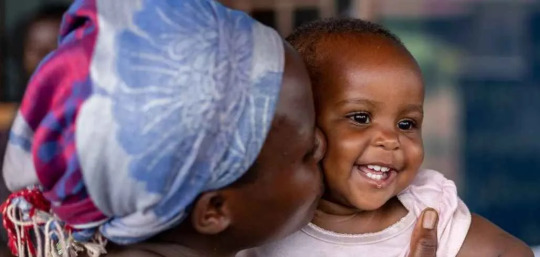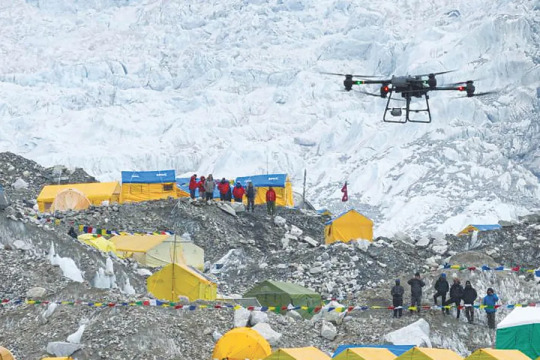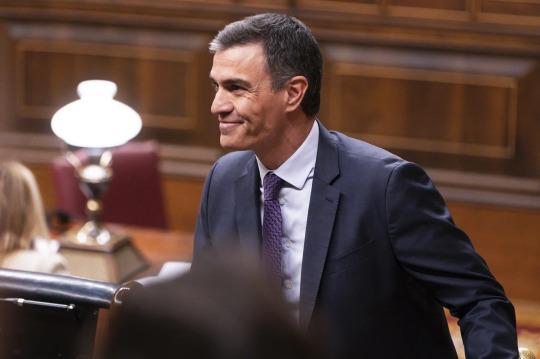#prime minister of iceland
Explore tagged Tumblr posts
Text
The Youngest Elected Serving State Leader in 2024
The current Prime Minister of Iceland (Forsætisráðherra Íslands) since 21 December, 2024, Kristrún Frostadóttir, from the Social Democratic Alliance party (centre-left), is the youngest elected serving state leader per January 2025 at age 36. Hopefully their government will run smoothly and still get parliamentary support.

She is beautiful!
Media Source: https://www.instagram.com/p/DEQM4jEAHzi/
#iceland#icelandic#prime minister#prime minister of iceland#government#government of iceland#Ísland#forsætisráðherra#forsætisráðherra Íslands#ríkisstjórn#ríkisstjórn íslands#politics#political#political news#news#centre left#center left#centre left politics#center left politics#female politician#female politicians#female leader#female leaders#female leadership#women in government#women in politics#women leader#women leaders#women lead#women leadership
7 notes
·
View notes
Text

#Kristrún Mjöll Frostadóttir#prime minister#politician#icelandic#prime minister of iceland#kristrun#kristrun frostadottir
2 notes
·
View notes
Text
#iceland#strike#women’s rights#gender equality#non binary#prime minister#equal pay#pay gap#ny times#article#sbrown82
13 notes
·
View notes
Text
The Best News of Last Year - 2024 Edition
Welcome to our special edition newsletter recapping the best news from the past year. I've picked one highlight from each month to give you a snapshot of 2024. No frills, just straightforward news that mattered. Let's relive the good stuff that made our year shine.
1. January - South Korea passes law banning dog meat trade

The slaughter and sale of dogs for their meat is to become illegal in South Korea after MPs backed a new law. The legislation, set to come into force by 2027, aims to end the centuries-old practice of humans eating dog meat.
2. February - Greece legalises same-sex marriage

Greece has become the first Christian Orthodox-majority country to legalise same-sex marriage. Same-sex couples will now also be legally allowed to adopt children after Thursday's 176-76 vote in parliament. Prime Minister Kyriakos Mitsotakis said the new law would "boldly abolish a serious inequality".
3. March - Global child deaths reach historic low in 2022 – UN report

The number of children who died before their fifth birthday has reached a historic low, dropping to 4.9 million in 2022. The report reveals that more children are surviving today than ever before, with the global under-5 mortality rate declining by 51 per cent since 2000.
4. April - Restoring sight is possible now with optogenetics

Max Hodak's startup, Science, is developing gene therapy solutions to restore vision for individuals with macular degeneration and similar conditions. The Science Eye utilizes optogenetics, injecting opsins into the eye to enhance light sensitivity in retinal cells. Clinical trials and advancements in optogenetics are showing promising results, with the potential to significantly improve vision for those affected by retinal diseases.
5. May - Vaccine breakthrough means no more chasing strains

Scientists at UC Riverside have demonstrated a new, RNA-based vaccine strategy that is effective against any strain of a virus and can be used safely even by babies or the immunocompromised.
6. June - Bill Gates-backed startup creates Lego-like brick that can store air pollution for centuries

The Washington Post detailed a "deceptively simple" procedure by Graphyte to store a ton of CO2 for around $100 a ton, a number long considered a milestone for affordably removing carbon dioxide from the air. Direct air capture technologies used in the United States and Iceland cost $600 to $1,200 per ton, per the Post.
7. July - Stem cell therapy cures man with type 2 diabetes

A 59-year-old man had been suffering from diabetes for 25 years, needing more and more insulin every day to avoid slipping into a diabetic coma and was at risk of death. But then Chinese researchers cured his disease for the first time in the world. The patient received a cell transplant in 2021 and has not taken any medication since 2022.
8. August - Chinese drones will fly trash out of Everest slopes

Come autumn, Nepal will deploy heavy lifter drones to transport garbage from the 6,812-metre tall Ama Dablam, south of Everest. This will be the first commercial work an unmanned aerial vehicle does in Nepal’s high-altitude zone.
9. November - Tokyo to make day care free to boost birth rate

Tokyo plans to make day care free for all preschool children starting in September, the city governor has announced as part of efforts to boost Japan's low birth rate.
10. October - FTC Rule Banning Fake Product Reviews Takes Effect With Stiff Penalties

Federal Trade Commission (FTC) Chair Lina Khan announced on Oct. 21 that the agency’s prohibition on fake online reviews was taking effect, imposing fines as high as $50,000 for violations. Khan encouraged followers to report the proscribed practices at reportfraud.ftc.gov.
11. November - Bumblebee population increases 116 times over in 'remarkable' Scotland rewilding project

The bumblebee population has made an impressive comeback in a developed area by increasing to 116 times what it was two years ago thanks to a nature restoration group.
12. December - Spain to enshrine gay marriage and abortion rights into its constitution so 'they cannot be undone in the future'

The left-wing PSOE leader made the announcement at an event marking the 46th anniversary of the Spanish Magna Carta.
“We believe that these are rights that we must protect in the Constitution so that no one can touch them in the future,” Sanchez said in a statement in parliament on Friday.
----------
That's it for last year :)
This newsletter will always be free. If you liked this post you can support me with a small kofi donation here:
Buy me a coffee ❤️
Also don’t forget to share this post with your friends.
462 notes
·
View notes
Text
gaz is the kind of guy that when he gets back from leave and soap's like "oh i saw my nan and hung out with friends" and price's like "spent time with the wife and kids" gaz is like. oh i was in ibiza with ke$ha for a week. visited Machu Picchu. had dinner at a restaurant inside a volcano in Iceland. Met the prime minister of New Zealand.
and everyone’s just staring at him like huh
#I just feel like he seems super normal to them but then has . an absolutely crazy life outside of the military#like parties with celebrities kinda vibe#but on the surface he seems soft spoken and serious#kyle gaz garrick#gaz mw2#kyle garrick#ceil writing#cod mw2
929 notes
·
View notes
Text

Tinganes - Tórshavn, Faroe Islands 2023
/Instagram
Tinganes is a historic part of Tórshavn, serving as the site of the Faroese government since the Viking Age. This small peninsula is home to the Prime Minister’s Office and other government buildings, with structures dating back to the 17th and 18th centuries.
As one of the oldest parliamentary meeting places in the world, along with Tynwald Hill in the Isle of Man and Þingvellir in Iceland, Tinganes dates back to 825, when the first Norwegian settlers established their Ting (parliament) here.
#photographers on tumblr#artists on tumblr#original photographers#imiging#original photography#blackandwhite#faroe islands#monochrome
117 notes
·
View notes
Text
Icelandic Fact of the Moment: Words Named After People
Sometimes, a person's behaviour becomes so iconic that they get permanently associated with that thing. Accordingly, Icelandic has some compounds where the first part is someone's first name, forever tying some lucky/unlucky individual to an abstract concept.
Gróusaga (gossip)
This one is admittedly not named after a real person. Instead, the namesake is Gróa á Leiti, a character from Jón Thoroddsen's 1850 romantic novel Piltur og stúlka, often considered the first Icelandic novel traditionally published in Iceland. Gróa, who in the book lived at the farm of Leiti, would spread salacious stories around, always keeping the source anonymous. Ever since, anonymous tales of gossip have been called gróusögur, or "Gróa stories". The word is generally used dismissively, to suggest a story is not true.
Þórðargleði (schadenfreude)
Schadenfreude is a fun German word encapsulating an important part of the human experience, namely the idea of taking joy in others' suffering. English just wholesale borrowed the word from the Germans. In Iceland, instead, we call it þórðargleði, or "Þórður's joy". In the 1947 memoirs of an Icelandic priest, Árni Þórarinsson, he explains how one day he met this one farmer Þórður, who was laughing uproariously about how in the north of Iceland it hadn't stopped raining all summer and everyone's hay was ruined, and he'd love to see the looks on their faces. Árni promptly coined a new word, and it stuck, forever immortalizing this guy as the epitome of a special kind of asshole.
Höskuldarviðvörun (spoiler alert)
In April 2016, the Progressive Party was in disarray after their chairman Sigmundur Davíð Gunnlaugsson finally very reluctantly resigned after being implicated in the Panama Papers. The party called a meeting, with a slew of reporters waiting outside to hear who would be the new chair and thus prime minister. MP Höskuldur Þórhallsson exited the meeting early and walked down the stairs into the crowd of reporters, who asked if he had anything to say, probably expecting a "No comment" at best. Instead, Höskuldur thought they already knew the results and were just asking for his take on it, so he told them he was fully behind the selection of Sigurður Ingi Jóhannesson in the prime minister position and more. The video is gloriously awkward.
A week later, Stöð 2 aired an episode of the sitcom Modern Family, in which a character saying "Spoiler alert" was subtitled with Höskuldarviðvörun, or "Höskuldur warning". Everyone took to this with glee because the incident was very funny and also something about the sound of the word feels very satisfying and appropriate. The translator, Arnór Hauksson, had been stuck on how to translate the term, which didn't have a good Icelandic equivalent at the time, and was then apparently inspired by tweets suggesting Höskuldur should have said "Spoiler alert!" before he started speaking. Today, höskuldarviðvörun has stuck and is legitimately used in, for instance, newspaper reviews of films that are about to discuss spoilers.
84 notes
·
View notes
Text
Iceland's minister for children has resigned after admitting she had a child with a teenager more than 30 years ago.
Ásthildur Lóa Thórsdóttir said in a media interview she had first started a relationship when the boy was 15 years old, and she was a 22-year-old counsellor at a religious group which he attended.
She then gave birth to his child when he was 16 years old and she was 23.
"It's been 36 years, a lot of things change in that time and I would definitely have dealt with these issues differently today," the 58-year-old told Icelandic media.
Iceland's prime minister, Kristrún Frostadóttir, told the press this was "a serious matter", although she said she knew little more than "the average person".
"This is a very personal matter [and] out of respect for the person concerned, I will not comment on the substance," she said.
According to Visir newspaper, Frostadóttir said she had only received confirmation of the story on Thursday night.
She immediately summoned the children's minister to her office, where she resigned.

celandic news agency RUV broke the story on Thursday night.
Thórsdóttir revealed in an interview with them that she had met the father, who RUV name as Eirík Ásmundsson, while she was working at the religious group Trú og líf (Religion and Life), which he had reportedly joined because of a difficult home life.
He was 15 years old and she was 22 at the time of their meeting. Thórsdóttir gave birth to their son when they were both a year older.
RUV report that the relationship was secret, but that Ásmundsson was present at his child's birth and spent the first year with him.
However, the news agency writes this changed when Thórsdóttir met her current husband.
They report they have seen documents Ásmundsson submitted to Iceland's justice ministry requesting access to his son, but that Thórsdóttir denied it, while also requesting - and receiving - child support payments from him over the following 18 years.
A relative of Ásmundsson tried twice to contact the Icelandic prime minister about the relationship last week.
Frostadóttir said last night that when the woman revealed it involved a government minister she asked for more information, which led to the revelation and the resignation.
In her TV interview with RUV last night, Thórsdóttir said she was upset that the woman had contacted the prime minister.
"I understand... what it looks like," she said, adding that it is "very difficult to get the right story across in the news today".
While the age of consent in Iceland is 15, it is illegal to have sex with a person under the age of 18 if you are their teacher or mentor, if they are financially dependent on you, or work for you. The maximum sentence for this crime is three years in jail.
Despite resigning from her ministerial job, Thórsdottir said she had no plans to leave parliament.
23 notes
·
View notes
Text

“mary looked great at the gala for the iceland prime minister! i’m loving her in the pearl tiara instead of her beloved ruby one lol” - Submitted by Anonymous
35 notes
·
View notes
Text
female political leaders, not counting queens, empresses, consorts, or pharaohs:
Mexico: Claudia Sheinbaum, president 2024-- Italy: Giorgia Meloni, prime minister 2022-- European Commission: Ursula von der Leyen, president 2019-- Finland: Sanna Marin, prime minister 2019-23 Ethiopia: Sahle-Work Zewde, president 2018-24 Taiwan: Tsai Ing-wen, president 2016-24 Myanmar: Aung San Suu Kyi, state counsellor 2016-21 South Korea: Park Geun-hye, president 2013-17 Brazil: Dilma Rousseff, president 2011-16 Thailand: Yingluck Shinawatra, prime minister 2011-14 Australia: Julia Gillard, prime minister 2010-13 Iceland: Jóhanna Sigurðardóttir, prime minister 2009-13 Germany: Angela Merkel, chancellor 2005-21 Finland - Mari Kiviniemi, prime minister 2010-11 - Anneli Jäätteenmäki, prime minister 2003 Indonesia: Megawati Sukarnoputri, president 2001-04 New Zealand - Jacinda Ardern, prime minister 2017-23 - Helen Clark, prime minister 1999-2008 - Jenny Shipley, prime minister 1997-99 Turkey: Tansu Çiller, prime minister 1993-96 Canada: Kim Campbell, prime minister 1993 Poland: Hanna Suchocka, prime minister 1992-93 Bangladesh - Sheikh Hasina, prime minister 1996-2001, 2009-2024 - Khaleda Zia, prime minister 1991-96, 2001-06 Lithuania: Kazimira Prunskienė, prime minister 1990-91 France - Élisabeth Borne, prime minister 2022-24 - Édith Cresson, prime minister 1991-92 Pakistan: Benazir Bhutto, 1988-90, 93-96 Philippines - Gloria Macapagal Arroyo, president 2001-10 - Corazon Aquino, president 1986-92 Yugoslavia: Milka Planinc, prime minister 1982-86 Norway - Erna Solberg, prime minister 2013-21 - Gro Harlem Brundtland, prime minister 1981, 86-89, 90-96 United Kingdom - Liz Truss, prime minister 2022 - Theresa May, prime minister 2016-19 - Margaret Thatcher, prime minister 1979-90 Portugal: Maria de Lourdes Pintasilgo, prime minister 1979-80 Argentina: Isabel Perón, president 1974-76 Israel: Golda Meir, prime minister 1969-74 India: Indira Gandhi, prime minister 1966-77, 80-84 Sri Lanka - Harini Amarasuriya, prime minister 2024 - Chandrika Kumaratunga, president 1994-2005 - Sirimavo Bandaranaike, prime minister 1960-65, 70-77, 94-2000
runners up:
People's Republic of China, 1.4 billion people - Soong Ching-ling, vice, acting, and honorary chairman
United States of America, 340 million people - Kamala Harris, vice president - Hillary Clinton, secretary of state and presidential candidate
Nigeria, 227 million people - Ngozi Okonjo-Iweala, minister of finance, foreign affairs
Vietnam, 100 million people - Đặng Thị Ngọc Thịnh, vice and acting president
South Africa, 63 million people - Phumzile Mlambo-Ngcuka, deputy president
10 notes
·
View notes
Text
Letter to Denmark's PM regarding Paul Watson's extradition
To the attention of: Mrs. Mette Frederiksen, Prime Minister of Denmark Christiansborg Palace 1218 Copenhagen K Denmark
Dear Prime Minister,
I am writing to you today to express my deep concern and strong opposition to the extradition of Paul Watson, founder of the NGO Sea Shepherd, to Japan. Mr. Watson was arrested on Sunday, July 21, in Greenland while making a refueling stop with his ship. He is now in detention and faces the risk of being extradited to Japan, following a 2012 arrest warrant for "conspiracy to board." This warrant, however, is fundamentally flawed and abusive, as it targets Mr. Watson for his courageous efforts to prevent the illegal whaling activities that contravene international conventions.
It is crucial to recall that Captain Paul Watson and his crew were headed to the North Pacific to prevent the Japanese ship Kangei Maru from illegally killing whales. His intervention, though radical, has always been peaceful and aimed at enforcing the 1986 international moratorium that bans whaling. Thanks to his actions, approximately 5,000 cetaceans have been spared from harpoons. Whaling is an outlawed and illegal practice that only three countries shamefully continue: Japan, Norway, and Iceland.
Paul Watson has devoted his life to protecting endangered marine animals. The Japanese arrest warrant is an abuse of Interpol's "red notice," originally intended to track international criminals, now being used to suppress a political and environmental opponent. Extraditing Paul Watson to Japan would be tantamount to a death sentence. At 73 years old and a father of three, he would face harsh imprisonment conditions.
For the past year, Paul Watson has been residing in France, where he continues his fight alongside Sea Shepherd France, traveling across the country to give lectures and tirelessly advocate for ocean conservation. It is imperative that France, represented by President Emmanuel Macron, formally request that Denmark refuse this extradition.
### Legal Argumentation
It is also essential to highlight the following legal aspects, which render this extradition not only morally reprehensible but potentially illegal and an abuse of law:
1. *Violation of International Moratorium*: Japan continues to practice whaling in blatant violation of the 1986 international moratorium, an interdiction supported by the International Whaling Commission (IWC). By extraditing Paul Watson, Denmark would indirectly support this illegal activity.
2. *Non-Refoulement Principle*: Under international human rights law, notably Article 3 of the Convention Against Torture, Denmark is obliged not to extradite a person to a state where they risk being subjected to torture or inhumane or degrading treatment. Given the harsh detention conditions and potential treatment Paul Watson might face in Japan, his extradition could violate this fundamental principle.
3. *Abuse of Procedure*: The use of an Interpol red notice by Japan in this context constitutes an abuse of procedure. Interpol’s mission is to combat international crime, not to pursue individuals for actions aimed at enforcing international law. The arrest of Paul Watson on this basis is legally questionable and could be considered an abuse of law.
4. *Defense of International Public Order*: The extradition of Paul Watson contradicts the principles of international public order, which include respecting international conventions on the conservation of endangered species. By protecting Paul Watson, Denmark would demonstrate respect for these principles and support the fight against illegal whaling practices.
By choosing not to extradite Paul Watson, you would powerfully affirm your commitment to justice and environmental protection. Your decisive action can make all the difference. Extraditing Paul Watson would not only be unjust but also send a disastrous message to all those fighting to preserve our planet.
Thank you in advance for your attention to this urgent matter. I sincerely hope you will intervene to prevent this unjust and inhumane extradition.
Yours sincerely,
YOUR NAME
26 notes
·
View notes
Text
maybe its because i live in a country that used to be part of the danish kingdom (iceland) but i feel like greenland shouldn't be part of denmark either. I think they should be independent.
i believe the prime minister of Greenland spoke of a referendum in April on that issue.
7 notes
·
View notes
Text

#Þorgerður Katrín Gunnarsdóttir#politician#prime minister#icelandic#Minister of Fisheries and Agriculture#porgedur katrin gunnarsdottir
2 notes
·
View notes
Text
Notre Dame and Børsen
One surprising new friendship between nations happened in the recent years.
France and Denmark.
Neither would have expected them to actually become something akin to friends.
After all they are merely on a talking basis, both being in the EU and everything. (A slight bias and hate, by Denmark forwards France for being on of the reasons for losing Norway...)
But friends? No one would have guessed that!
Iceland called it "Traumabonding"
But why?
When a landmark is destroyed, nations suffer. Their existence is tied to the national pride and feeling of unity and cohesion of the citizens. The destruction of language, culture and landmarks can have a lasting effect on the nations and their bodies.
Scars.
Notre Dame burned on the 15 April 2019, at 18:18.
The entirety of Europe held it's breath, while the french cathedral burned live on TV. Cried, when the spire fell.
Centuries of history. Burning.
France was devastated. This was his church. The place with it's hidden pathways. The place he would go to, climbing on top to look down forwards the ever buzzing Streets of Paris. The way the skyline changed in the distance. The way the future shaped the old streets.
Something old, something new.
And he represented both. The past, the present and the future of the french people and state.
16 April 2024, that was the date when Denmark starred out his office window in Christiansborg.
The fire just across from him.
Engulfing the old building.
Børsen was burning...
This time, the media coverage was still there, but not as prominent as with Notre Dame.
After all, he was just Denmark. His name no longer a main power within the battle ground of Europe. Having lost his Empire.
He couldn't move, he was frozen.
His citizen running forwards the building, saving the art within the walls.
Denmark didn't hear his phone ring.
Maybe he did. But he couldn't pick the phone up.
It was probably Iceland. Or Norway. Maybe Sweden, if he'd even care...
After all, the spire fell. The three crowns, representative for Sweden, Norway and him, collapsing.
The building said to never burn was ablase.
On the 19th of April 2024, two nations where sitting together. Both with a class of wine.
Talking.
Crying.
Laughing.
Healing.
Empires lost. Nations won.
The past.
The present.
The future.
~~~~~~~~
Hello!
This Idea totally did not come from the fact that I saw a post of the danish king and queen visiting Notre Dame with the french prime minister.... Noooooooo....
But yeah. This ended up fitting perfectly into my head-canon about the effect of historical landmarks, culture, etc on the personifications. (I can elaborate on that if anyone is interested!)
6 notes
·
View notes
Text
On January 9, 2024, Swedish defense chief Gen. Micael Byden stood on a stage in Salen, Sweden, and gave a presentation intended to shock. Projecting a series of grisly images from the front lines of the Ukraine War, overlaid on a backdrop of snowy Swedish field, he asked: “Do you think this could be Sweden?”
Until February 2022, these questions would be unimaginable for a country that has maintained a careful 75-year strategy of peaceful nonalignment toward NATO. In a 2012 speech, the supreme commander of Sweden’s military at the time, Sverker Goranson, said that, in the event of an attack, “Sweden can survive for a week.” But at this recent Society and Defense Conference in Salen, leaders made it clear that the era of de-emphasizing defense was over. There, Swedish Prime Minister Ulf Kristersson urged his citizens to prepare to defend themselves “with weapons in hand and our lives on the line.”
For Russia’s Scandinavian neighbors, the full-scale invasion of Ukraine disrupted a cool calculus of neutrality. Last year, Finland became NATO’s newest member, with Sweden likely soon to follow, pending approval from Hungary. These new northern alliances are shifting the geopolitical power balance, with Arctic NATO nations soon outnumbering Russia seven to one. And, just as the melting Arctic ice opens new resources and routes for global economic competition, it also exposes new defensive vulnerabilities.
Today, as Ukraine and its NATO allies push Russia into a corner, global leaders—together with Scandinavians themselves—are increasingly turning a troubled gaze north. They’re asking: How likely is escalation in colder climes?
“The increasing competition and militarization in the Arctic region … is worrying,” NATO military committee chair Adm. Rob Bauer said in an October 2023 speech at the Arctic Circle Assembly in Reykjavik, Iceland. “We must be prepared for military conflicts arising in the Arctic.”
“Low tensions in the High North”: so have global leaders and analysts referred to a post-Cold War period of relative polar stability. For the past several decades, bilateral and international agreements between Russia and other Arctic states have emphasized shared northern security as well as scientific and safety interests. But after Russia’s full-scale invasion of Ukraine, these arrangements quickly fell apart. In March 2022, the Arctic Council, a forum between the eight Arctic states, suspended talks. (In May 2023, it cautiously resumed but has yet to make Russia’s involvement clear.) In September 2023, Russia left the smaller Barents Euro-Arctic Council with Norway, Finland, and Sweden—saying the Scandinavian states had “paralyzed” cooperation. In February 2023, Russia amended its Arctic policy, emphasizing new alliances with other BRICS (Brazil, Russia, India, China, and South Africa) nations, particularly China. That month, it also suspended participation in New START, the last remaining nuclear arms control agreement between the United States and Russia.
“There’s this post-Cold War political idea of ‘Arctic exceptionalism,’ that the north is excepted from developments in global politics,” said Rasmus Bertelsen, the Barents chair in politics at the Arctic University in Tromso. “The problem is, it’s never been valid.”
Look a little closer at the past decades, Bertelsen said, and you’ll see a Russian Arctic strategy that closely follows its global agenda. In 2007, Russian President Vladimir Putin’s speech at the Munich Security Conference firmly rejected a U.S.-led, post-Cold War global order of stability. That same year, Russia launched its first cyberattack on Estonia and made a bold Arctic territorial claim by planting a Russian flag in the seabed below the North Pole. Putin has also concentrated militarization around the High North. Since 2014, the year Russia annexed Crimea, Russia has steadily grown a northern fleet of nuclear submarines, surface ships, missile facilities, air fleets, and radar stations. Today, Russia’s largest military base is on the Kola Peninsula, which borders Norway and Finland, where it is also testing new hypersonic missiles and a nuclear torpedo drone. Though about 80 percent of Russia’s northern land forces were deployed to Ukraine, its air and sea forces remain intact.
“Earlier, Russia had an interest in seeming like a constructive partner, including in the Arctic,” said Andreas Osthagen, a senior fellow at the Arctic Institute in Oslo, Norway. “Just like in the rest of the world, that has deteriorated.”
Russia’s full-scale invasion came as a wake-up call to Scandinavian neighbors that have, for decades, resisted militaristic alliances. Suddenly, neutrality began to look a lot more like vulnerability. Finland had an especially stunning reversal: As recently as December 2021, 51 percent of Finns opposed joining NATO. Today, 78 percent support the membership. With this alliance comes the promise of U.S. military might. In 2023, Finland and Sweden both signed bilateral military agreements with the United States, permitting American personnel and weapons at dozens of bases, including nine in the Arctic. Norway, an active NATO member since its formation, already has several bases that permit U.S. personnel and weapons. Still, since the Cold War, Norway has followed a “reassurance” policy that limits NATO and its allies’ presence past the 28th longitudinal zone, close to Russia. Now, it’s unclear whether that policy will hold.
Since 2009, the Nordic Defense Cooperation has aligned Denmark, Sweden, Norway, and Iceland on national military policy. In 2022, Norway, Finland and Sweden announced an agreement to strengthen the alliance with a focus on the high North. Today, Norway, Sweden, Denmark, and Finland are in ongoing talks about formally sharing their air forces. In March 2024, Norway will lead an expanded “Nordic response” exercise for these nations to test their coordinated defense plans. Michael Paul, a senior fellow in security policy at the German Institute for International and Security Affairs, said that history will reveal this new Nordic alliance as “one of Putin’s greatest mistakes.”
“If the war in Ukraine has achieved anything, it’s to align the Nordics on security,” Paul said. “You want to divide your enemies, not unite them against you.”
Ferguson sees the U.S. Swedish and Finnish military bases as mutually beneficial: Where the U.S. has resources, it often lacks technical expertise in extreme conditions. These smaller nations, she said, have a lot to teach the United States military. And their alliance with NATO is, she said, a “game-changer.”
“We now have seven out of eight Arctic nations geopolitically aligned with highly capable militaries,” Ferguson said. “I don’t know if there is such a concentration of alignment and capabilities between nations anywhere else in the world.”
Still, Ferguson emphasized that this is all in the name of deterrence. And experts agree that a full-scale northern conflict is unlikely. Paradoxically, Paul noted, Russia’s sheer military capacity and economic resources that increase Arctic tensions also deter real escalation. In the north, Russia simply has too much to lose: The immense territorial mass and extensive fossil fuel resources both stand as major claims to its identity as a global superpower. And unlike the cases of Ukraine and Crimea, Putin has never publicly imagined reclaiming Finland, which declared independence from Russia in 1917, nor has he spoken about accessing the Atlantic through Norway. Paul said that the Kremlin has an interest in maintaining a “low level of tension” in the north.
For now, that has meant hybrid warfare: “gray zone” tactics that are harder to trace or attribute. For instance, in November 2023, after a massive surge of asylum-seekers prompted Finland to become the first neighbor to close its border to Russia, Finnish Prime Minister Petteri Orpo called the move “instrumentalized immigration”; that is, retaliation for joining NATO. (Russia denied the charge.)
At sea, potential aggression is even harder to trace. In April 2021 and January 2022, fiber-optic cables connecting the Svalbard archipelago to the Norwegian mainland was mysteriously severed. Later, vessel-tracking data revealed, in both instances, that Russian fishing boats had passed repeatedly over the cables prior to the damage. In October 2023, a Chinese container ship called the Newnew Polar Bear damaged a Baltic gas pipeline before entering Russian waters. According to the Finnish National Bureau of Investigation, a severed anchor likely belonging to the ship caused the damage, but experts still dispute whether the damage was intentional. Proving malicious intent is extremely difficult, and investigations are ongoing.
“It’s one of the major questions being asked right now: How do we defend against attacks on subsea critical infrastructure?” said Marisol Maddox, a senior Arctic analyst at the Polar Institute of the Woodrow Wilson International Center for Scholars in Washington, D.C. “There hasn’t been a single instance of serious consequences. At this point, the lesson that Russia is learning is that they can get away with it.”
Intentional or not, the effects of such infrastructure damage can be extensive and long-lasting: For example, the fiber-optic cable damaged in April 2021 wasn’t identified and repaired until November of that year. Luckily, one other subsea cable remained to keep the lights on in Svalbard. But absent that redundancy, thousands of people could have been left stranded without power for months. In the event of an explicit conflict, Maddox said, those kinds of vulnerabilities are extremely worrying.
In highly militarized zones, mistakes may carry the highest risk. To Osthagen, “miscalculation and misinterpretation” are the “greatest security risk in the North Atlantic Arctic.” In this region, Russia and NATO both conduct frequent military exercises, rehearsing mobilization of their forces and fleets. These routine rehearsals are especially necessary in colder climates, which require cold-resilient equipment and technology. (Notably, Osthagen emphasized, Russia has simulated direct attacks on its neighbors, whereas NATO has strictly simulated defensive strategies.) But these are complicated operations, often testing people and procedures for the first time. All it takes is one accidentally discharged firearm, one crossed signal, for rehearsal to open a military theater. Typically, such exercises are clearly communicated and coordinated across borders. But more recently, this communication has suffered.
“Paradoxically, after February 2022, the tension and fear of something happening has increased, whereas the potential for dialogue has disappeared,” Osthagen said. “This is the most troubling aspect of all.”
And where does this warfare, hybrid or explicit, end? In the worst case, the current war in Ukraine could conclude with a northern strike. Russia has 11 submarines capable of launching long-range nuclear weapons; eight of them reside in the Kola Peninsula. For this reason alone, the Arctic carries a particular weight for global leaders who must consider escalation to its absolute hypothetical end.
Even so, Paul emphasized that Arctic conflict of any form still remains counter to Russia’s interests and is less likely than in other parts of the world. Still, he cautioned against assuming that Putin will behave rationally. If backed into a corner, as NATO expands and Ukrainian troops advance, it is impossible to know how he will respond. But a fact remains that Arctic nations won’t easily forget: The remainder of his military might centers on the north.
“Putin made a big mistake in Ukraine,” Paul said. “He could make another in the Arctic.”
25 notes
·
View notes
Text
3 minute read
Anti-slavery charity Unseen says it is receiving record numbers of calls to its helpline, with significantly more reports of forced labour, domestic servitude and people being trafficked for sex.
Unseen saw a “huge increase” between 2021 and 2022 in the number of calls to the UK Modern Slavery & Exploitation Helpline reporting potential victims of forced labour in care homes or private residences, and is calling for proposed legislation that criminalises victims to be shelved.
“To be serious about tackling modern slavery in the UK we need much more awareness of the true size of the problem, better support for victims, and many more resources going into targeting the criminals behind the exploitation”, said Justine Carter, director of Unseen.
“Instead, the UK is bringing in new migration laws that criminalise some victims of modern slavery, forcing them underground and keeping them vulnerable to traffickers.”
The news comes as Prime Minister RIshi Sunak is expected to tell a Council of Europe meeting in Iceland that policing human trafficking is “not working”.
“It is very clear that our current international system is not working, and our communities and the world’s most vulnerable people are paying the price,” Sunak said ahead of the trip “We need to do more to co-operate across borders and across jurisdictions to end illegal migration and stop the boats.”
But Shadow Home Secretary Yvette Cooper accused the PM of “hypocrisy” and “trying to make it easier for trafficking gangs in the UK” with the Illegal Immigration Bill.
“If he really believes countries should tackle trafficking he should stop pushing through legislation at home which will make it even harder to prosecute traffickers,” Cooper said in a statement.
The Illegal Migration Bill currently being pushed through parliament seeks to “prevent and deter unlawful migration” but campaigners say it will ban support for victims of human trafficking and other forms of modern slavery.
Under the law, genuine victims of human trafficking who arrive in the UK on small boats won’t be allowed to enter the government’s framework for identifying victims of modern slavery and referring them for support, called the National Referral Mechanism (NRM). This means that a vulnerable person who arrives in the UK to seek asylum but is then trafficked into slavery will themselves be criminalised, rather than the traffickers.
The helpline reported a 134 per cent rise in the number of cases of labour exploitation in sectors including hospitality, construction, farming and retail they received.
A call to the helpline in 2021 led to the discovery of nine vulnerable Indian students who were being exploited in care homes in north Wales. They were found sleeping on mattresses in cramped and unsanitary conditions and were described as appearing to be always hungry.
More than 6,500 potential cases of of human trafficking were made to the helpline in 2022, a 116 per cent increase on the year before, but this is just “the tip of the iceberg”, with Unseen estimating that around 100,000 people in the UK are in modern slavery.
“It’s encouraging that more people are contacting us so that we can help them out of a life of misery,” said Carter, however, every call the charity receives is “one too many as slavery should not exist today.”
The helpline reported 479 cases of sexual exploitation, where people are forced into sex work, an increase of 66 per cent.
Cases of domestic servitude, a form of forced labour where people working as cleaners, nannies, cooks or carers in private homes are unable to leave, rose by 75 per cent.
In April The Big Issue reported on the case of Joanna – not her real name – who was brought to the UK as a domestic worker with a wealthy family from Dubai. She was forced to care for an elderly man for 12 hours a day, after which she was locked in a hotel room each night.
“I didn’t think to run because I am honest. I had done nothing wrong, why should I run?” she told The Big Issue, “I have an employer, they should pay me.” But after weeks of forced labour in the UK she’d been paid just £20.
She escaped after British police arrived at the hotel and advised her to run away. After a lengthy process, Joanna was identified as a victim of human trafficking by the government referral system.
Kalayaan, a charity supporting migrant domestic workers, is campaigning for a change to visa rules to make it easier for those from overseas to change employers. This would give them a legitimate escape route out of domestic servitude if their employer is being controlling, exploitative or abusive.
Avril Sharp, who works on policy, campaigns and case work at Kalayaan, said that the rise in numbers of calls to the helpline aligns with the fact that the number of referrals to the NRM is currently the highest since it was established in 2009.
“The NRM [is] nearing breaking point”, she told The Big Issue.
“Kalayaan has been contacted by many survivors reporting difficulties in trying to access a referral to the NRM, and who have been advised by some to approach either the police or the helpline for further assistance.”
She argued that more organisations must be trained and allowed to refer potential victims of slavery to the NRM.
“The government must acknowledge that the increase in numbers of survivors coming forward wanting to access advice, information and support means that there needs to be an increase in the numbers of trained and specialist non-statutory first responder organisations”, she said.
65 notes
·
View notes